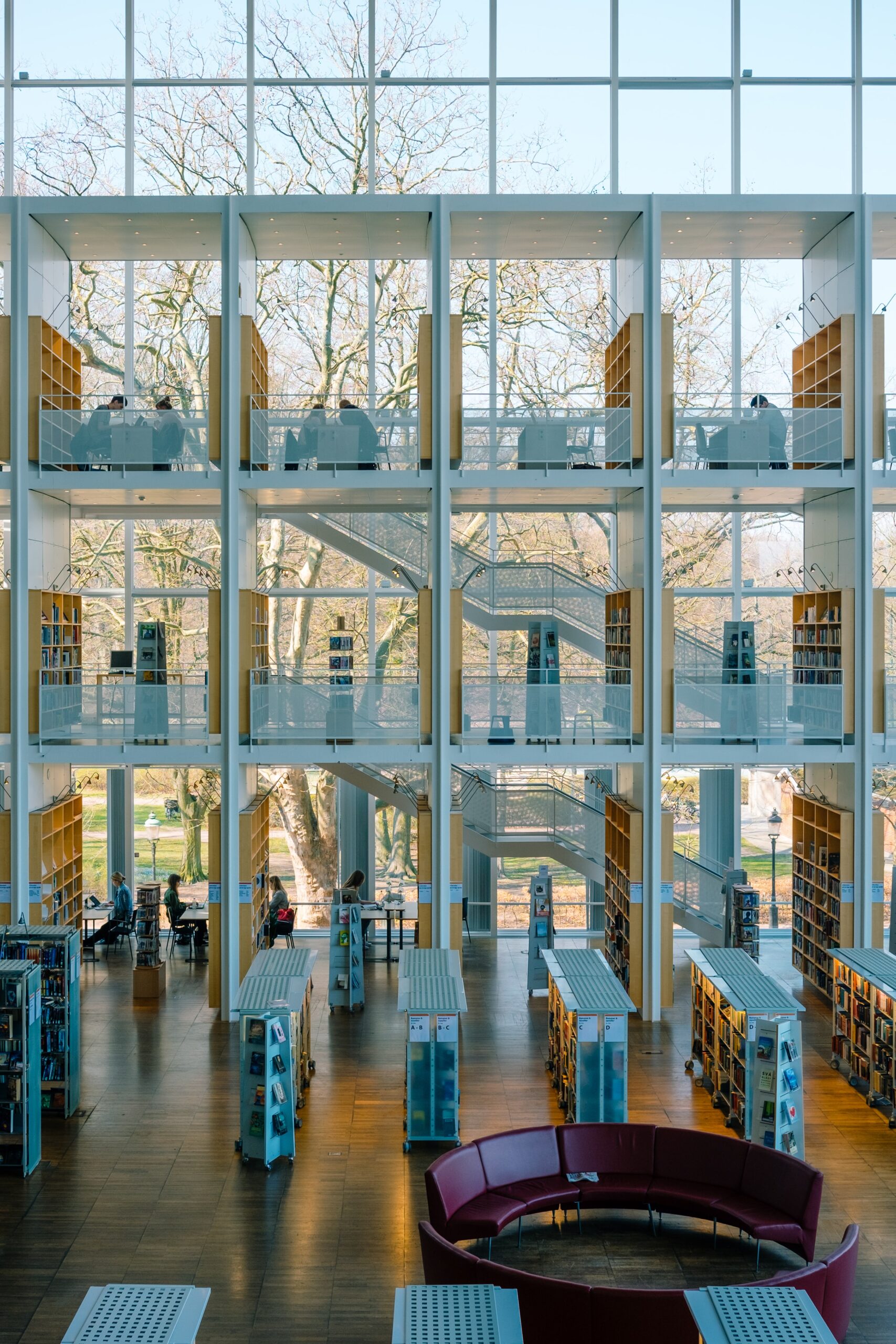
Unit 1: Open Innovation as crisis response in academia-society cooperation
In a world that is moving fast in terms of scientific and technological breakthroughs, and automations, re-inventing the connection between the centres of knowledge creation, namely academia and society has become a precondition to building a sustainable, just and inclusive future. In this complex environment, open innovation can facilitate the rapprochement between the academic world and society as well as provide the base for knowledge co-creation and co-development of solutions to pressing societal problems and challenges.
Therefore, this unit will focus on defining the term “open innovation”, highlighting its value and role in academia-society cooperation initiatives.
Before entering the unit, please prepare a notebook (a physical or digital one) which will accompany you on your educational journey through the Module. The notebook will become your reflective diary in which you will answer reflective questions which are posted in different places of the unit, or in which you will note down some thoughts about different topics. This diary will enrich your educational journey and will become an invaluable resource for the future for you to refer back to what you have learnt throughout the whole module.
The term open innovation has been used recently in a broader context by, among others, the European Commission’s publication “Open Innovation, Open Science, Open to the World – a vision for Europe (European Commission 2016) from which we borrow the definition which will be adopted in this module: “Open Innovation is to open up the innovation process to all active players so that knowledge can circulate more freely and be transformed into products and services…” (ibid, p. 11).
What makes citizen involvement relevant to the open innovation process is that “Open innovation is about involving far more actors in the innovation process, from researchers to entrepreneurs, to users, to governments and civil society” (ibid p. 88).
Some of the most inspiring projects that foster academia’s and citizens’ engagement in open innovation activities are the INOS project and the HEIDI project.

https://unsplash.com/photos/_kdTyfnUFAc
The concept of open innovation brought to the fore the issue of utilising (non-remunerated) citizen contributions to a final result that may not always be publicly available. Within this context of open, distributed social participation, the term crowdsourcing was coined by Howe (2006) and refers to the engagement of individuals who voluntarily offer their knowledge to a knowledge seeker (such as a social group, an organisation, a company, etc.).
Crowdsourcing implies favouring the commitment of motivated participants in the production process. Depending on the context, it is not only seen as a movement towards massive user engagement in structured settings and in a collaborative manner, but also as a means by which companies exploit users’ collective efforts of knowledge building, without corresponding remuneration, “[by] tap[ping] the latent talent of the crowd” (Howe 2006). Crowdsourcing has also been analysed from an educational perspective (Paulin & Haythornthwaite 2016; Zourou & Potolia 2020) as well as for its potential in citizen science, namely for its affinities with user involvement in Public Participation in Scientific Research (PPSR).
Reflection question: How do you understand the term open innovation? Create your own definition and note it down in your reflective diary.
1.2: Open Innovation in academia-society cooperation
Universities play a fundamental role in fostering various forms of open innovation. There is a wealth of resources on the role of HEIs in open science, as well as ways of unleashing the potential of researchers in committing to open innovation. For instance, there is a growing interest in Responsible Research and Innovation (RRI), with leading initiatives such as FIT4RRI, RRItools, and NewHoRRIzon, among others.
Moreover, the Erasmus+ 2019 Programme Guide highlights the importance of “knowledge-creating teams of students and academics, possibly together with researchers, businesses, regional actors and civil society actors [that] (…) address together societal and other challenges of their choice in a multi-disciplinary approach through innovative learning and training that equip students and researchers with high-level, entrepreneurial, Open science and transferable skills” (Erasmus+ 2019).
In this context, data stewardship (Teperek et al., 2018) is a new function adopted by universities to support scientific staff with data management and also to ease the open science and open innovation pathway. Under the priority “Educate for the future and invest in people who will make the change”, the 2017 publication LAB – FAB – APP by an expert group on maximising the impact of EU Research & Innovation Programmes (European Commission, 2017a), claims that:
“Europe’s universities need urgent renewal, to stimulate entrepreneurship and tear down disciplinary borders. Strong non-disciplinary collaborations between universities and industry should become the rule and not the exception. (…) Projects should include training activities for the next generation of researchers and innovators, particularly skills needed for data-driven open science. Whenever possible, citizen science should be encouraged, where citizens become providers and users of data. This will reinforce and give new meaning to the policy of open access to publications and data; this openness should enable citizens and citizen groups to participate in evidence-based policy and decision-making.” (p. 13).

https://unsplash.com/photos/CXdeJI3bD2U
Based on the claim above, the LAB – FAB – APP study urges action that provides the opportunity to “stimulate co-design and co-creation through citizen involvement.” (ibid, p. 19).
The interest in the citation above resides in the relationship that is drawn between change in universities through innovation, partially built on citizen engagement. It also emphasises the role of citizens as providers but also as users of scientifically generated data, in a more dialogic relation than mere data delivery on the user side.
In the next unit, we will focus on the role open innovation plays in cultural heritage preservation in times of crisis.
Task 1: Visit the websites of the leading initiatives in Responsible Research and Innovation and note down your reflections about them in your reflective diary. Think about those initiatives and what aims they are trying to achieve.
Reflection question: Do you agree with the statement that citizen science where citizens become providers and users of data should be encouraged?
-
Note down your point of view in your reflective diary.
-
Share your view with other course participants. (a discussion forum?)
Unit 1 Quiz:
You are about to enter Unit 2 of our Module which focuses on open innovation as a response to cultural heritage crises and the role of academia-society cooperation. Please remember to have your reflective diary at hand to note your thoughts and answers to reflection questions which, as you already know, are posted in different places in the unit. As previously explained, this diary will enrich your educational journey and will become an invaluable resource for the future for you to look back on what you have learnt throughout the whole module.
Further readings:
-
Chesbrough, H., Crowther, A. K. (2006, May 25), “Beyond high-tech: early adopters of open innovation in other industries”. R&D Management 36 (3), 229-236. https://doi.org/10.1111/j.1467- 9310.2006.00428.x
-
Seltzer, E., Mahmoudi, D. (2012, December 10). Citizen participation, Open Innovation, and Crowdsourcing: Challenges and Opportunities for Planning. Journal of Planning Literature, 28(1) 3-18. https://doi.org/10.1177/0885412212469112
-
European Commission. (2016). Open Innovation, Open Science, Open to the World – a vision for Europe. Directorate-General for Research and Innovation. https://ec.europa.eu/digital-singlemarket/en/news/open-innovation-open-science-open-world-vision-europe
-
Zourou, K., Potolia, A. (2020), in press. Openness in a crowdsourced massive online language community. In C. Blyth, J. Thoms (Eds.) Open Education and Foreign Language Learning and Teaching: The Rise of a New Knowledge Ecology. Multilingual Matters
-
Paulin,D., & Haythornthwaite, C. (2016). Crowdsourcing the curriculum: Redefining e-learning practices through peer-generated approaches. The Information Society, 32(2), 130-142. https://doi.org/10.1080/01972243.2016.1130501
-
Teperek, M., Cruz, M. J., Verbakel, E., Böhmer, J. K., & Dunning, A. (2018, January 29). Data Stewardship – addressing disciplinary data management needs. https://doi.org/10.17605/OSF.IO/MJK9T
-
Erasmus+. (2019). Programme guide. https://ec.europa.eu/programmes/erasmusplus/resources/programme-guide_en
-
European Commission. (2017a). LAB-FAB-APP: Investing in the European future we want: report of the independent High-Level Group on maximising the impact of EU research & innovation programmes.


